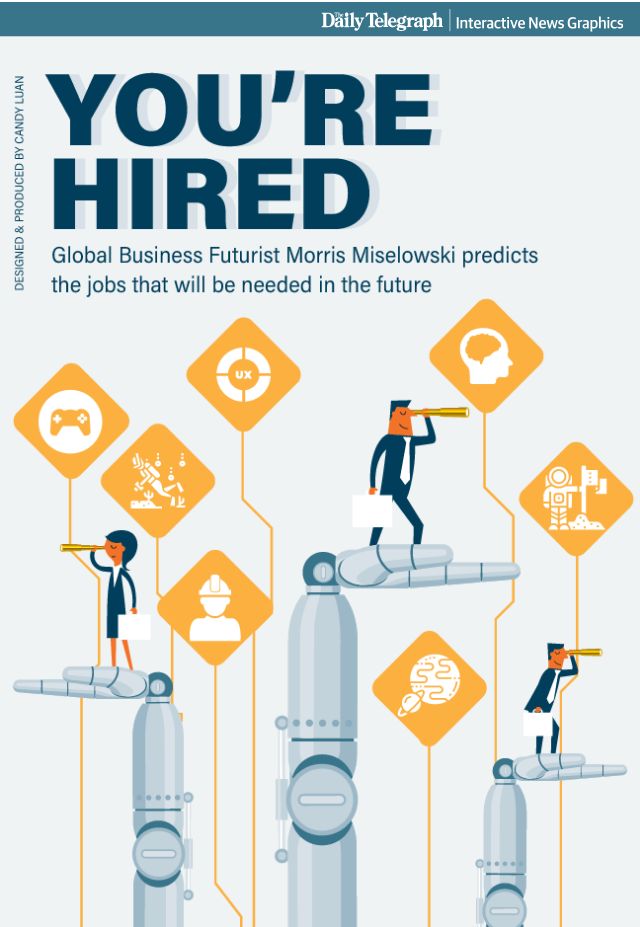Tomorrow’s jobs will be very different

Published in: The Advertiser, News.com.au, The Daily Telegraph, Perth Now, NT News,
From driving a space shuttle to mining an asteroid, or even earning millions playing video games — the universe is the limit when it comes to predicting what jobs today’s children will be doing in the future.
Fields such as space tourism and augmented reality are likely to undergo huge growth but the biggest change is that tomorrow’s workers will likely never hold down a traditional job as we know it, Global Business Futurist Morris Miselowski said.

“They won’t work nine to five, they won’t work Monday to Friday and they will have the ability to earn income through tasks, rather than one job,” Mr Miselowski said.
He predicts that routine jobs which can be easily automated will be the first to go in the changing workplace.
Jobs of the future will be very humanistic and by 2030 the routine nature of work will be given over to technology.
“Any job that is routine, where we can put together a formula, where we can train a machine to do, will have disappeared — bookkeeping, accounting as we know it, and even brain surgery,” Mr Miselowski said.
“Brain surgeons have said outwardly they prefer it when the technology takes over to make it laser perfect.
“When they know that machine can point the laser and never move they will go in and use their wisdom and nuance to best manipulate what has to be manipulated.”



FUTURE JOB PREDICTIONS
Tradies will still be around, but their roles will change, he said.
“We will actually need more trades than we ever did before, so allied health, plumbers and electricians will still exists … but the routine nature of what they do will not. We will still need humans to interpret to do things that machinery can’t,” he said.
His predictions align with research commissioned by Ford Australia and conducted by Deakin University and Griffith University earlier this year.

It found we will work with machines in jobs of the future, rather than compete with them.
Griffith University teaching and curriculum transformation Professor Ruth Bridgstock predicts a more complex world of work.
“Through our research for the 100 Jobs of the Future report, we predict a more complex and changing world of work but one where young people will be able to find or create exciting work opportunities that make the most of their interests and skills,” she said.